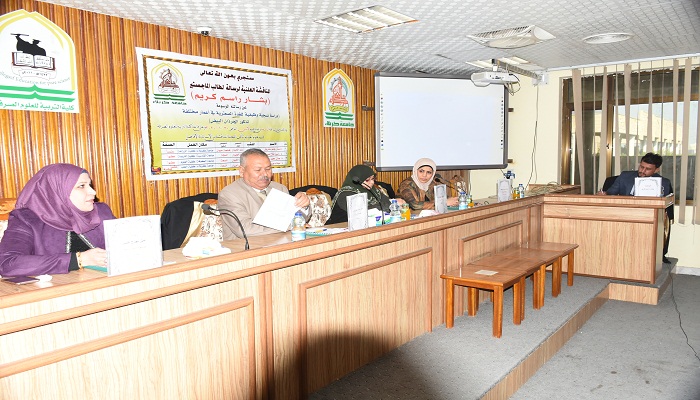Master thesis in the Department of Life Sciences explains the histological and functional study of the thymus gland at different ages for male white rats
The Department of Life Sciences at the College of Education for Pure Sciences at the University of Karbala discussed a master’s thesis tagged) A functional histological study of the thymus gland at different ages for male white rats) by (Bashar Rasim Karim) under the supervision of Prof. Sinai Jabouri, on Monday 20/1/2020, the aim of the message was to study the histological changes in the thymus gland tissue for different age stages in male white rats, to study some histological measurements of the thymus gland for different age stages in male white rats, and to study some functional criteria for the stages Different age for thymus tissue in male white rats, and measurement of the level of the basic enzyme phosphatase for different age stages in thymus tissue in male white rats, the study has produced that the thymus in adult life suffers atrophy as it is not active with age. He suffered changes in thymus tissue such as the thickness of the capsule, cortex and pulp, a change in the number and diameters of Hassel particles and the replacement of visceral tissue with mental tissue with age, and it was concluded that some biochemical parameters MDA, GSH, and ALP are closely related to tissue tissue changes in the thymus, and when changes in the structure The thymus gland with age, but it is still working on the maturity of T-lymphocytes before they migrate to other organs, and the message came out with recommendations, including: A study of histopathology with special pigments to study some tissue components in the thymus gland at different ages, and measure some hormones for The thymus gland has different ages, a measure of some immunological criteria for T cells of the cortex and pulp regions and different ages, a molecular histological study of some genetic diseases that the thymus gland has to do with its relationship to histological changes and the number of T-lymphoid and epithelial cells, and a study of immune histopathology of some cells of the thymus gland and of different ages.





























































